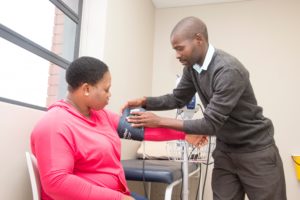Stories > Mental Health Self-Care: Find a Doctor

Mental Health Self-Care: Task for November, Find a Doctor
.mmu
By Brianna White, Intrepid Counseling
.
If you think you may want to find a counselor this fall, start by looking for a medical care provider. If you’re reading this, chances are you are not living where you grew up and can’t just keep doing whatever you did for medical care as a kid. So here’s the how-to from someone an MK a few years ahead in the process.
Wait, why is this mental health article about finding a doctor?
Everything happening in your mental health is connected to your physical health. Some health conditions are noted for causing symptoms that feel just like anxiety or depression. I know this from experience. I have a mild heart condition called Mitral Valve Prolapse, that is known for making hearts race, which can feel like a panic attack. Beginning your mental health care journey with a physician is the wise and strategic choice. You’ll make sure nothing medical is taking place that needs to be addressed. You’ll also be able to tell the counselor that there are or aren’t physical conditions impacting your mental health symptoms. This will help with the accuracy of any mental health diagnosis you may get later.
Why do I need to find a doctor now if I’m not sick?
Finding “your doctor” is an important adulting or relocating task. When you’re new to an area, like you’ve arrived from out of the country it can be hard to prioritize finding a primary care provider, but it’s much more fun to do this while you’re well than when you’re feeling too sick or in emotional distress. As a college freshman, fresh in from Papua New Guinea, I was overwhelmed by the process, but the idea of figuring it out once sick scared me more.
How to find a PCP (Primary Care Provider):
Starting to see a new doctor is called “establishing care.” This medical professional could be a Physician (Medical Doctor (MD) or Doctor of Osteopathy (DO) or a Registered Nurse Practitioner / Advanced Registered Nurse Practitioner (RNP / ARNP / APRN), or Physician’s Assistant (PA). This person is called your primary care provider (PCP). Fill this position on your care team first.
Where to begin: If you have insurance, start by getting your insurance company’s list of doctors near you. If you’re on a campus that has a health center, you can check there first. U.S insurance plans make an annual wellness visit / physical / well check free. Be aware that if you have a list of concerns to bring up this might be considered an “office visit,” which is likely not free. Just let them know what you want to talk about and ask them to schedule you the right kind of visit – ex: “establishing care,” “wellness visit,” “I think I may have a problem with anxiety.”
For all TCKs: If they ask you “have you had any other major illnesses?” make sure to include illnesses that would be common where you grew up, but might major to someone in the U.S. Once, a nurse I’d never met before looked at my medical history, and said “are you a missionary kid?” just based on the illnesses listed. We often have unexpected medical histories.
For Women: Something for women to consider is whether you will have one provider for general medical care and a different one for specialized women’s healthcare or go for “all-in-one.” Family Practitioners or Family Medicine Doctors or Women’s Health specialist medical providers may be able to provide all your general and woman-specific care in one visit or in one location. Otherwise, you can ask your primary care provider for a recommendation for an obstetrician-gynecologist (OB-GYN).
Talking to the Doctor about your Mental Health
Tell your PCP about all your symptoms, every kind of distress you’re experiencing whether you think they are from physical or emotional sources. If you have mental health concerns, ask for lab tests that would rule out physical causes for anything that seems like a mental health issue. Lab tests aren’t always done at a wellcheck visit, so you may need to ask for these specifically and there could be a cost. You may also receive from your doctor a screening questionnaire about mental health symptoms. Make sure someone interpretes your results for you.
What about Psychopharmacology?
*Always go with what your physician says, over what you read in a blog including this one.
Psychopharmacological medications are designed for mental health issues. A common recommendation is to see a therapist/counselor for at least 6 sessions before starting medication (to see if therapy alone will be sufficient) and continue seeing a counselor/therapist while on medication. This is because in general, between therapy alone, medication alone and therapy + medication, medication alone is often the least effective. All medications have the risk of possible side effects, so make sure you understand what to expect, what ways the medication might make you feel differently. Even if the medication is safe, it might not make you feel better and it might not work right away, make sure you understand what to expect including how long it should take to work. (Read more here about therapy versus medication for different mental health concerns).
Next it’s time to find a Mental Health Clinician. Stay tuned for my article in January decoding the Mental Health Clinician alphabet soup.
__________________________________________________________________________
Photo by Hush Naidoo Jade Photography on Unsplash


Brianna White
